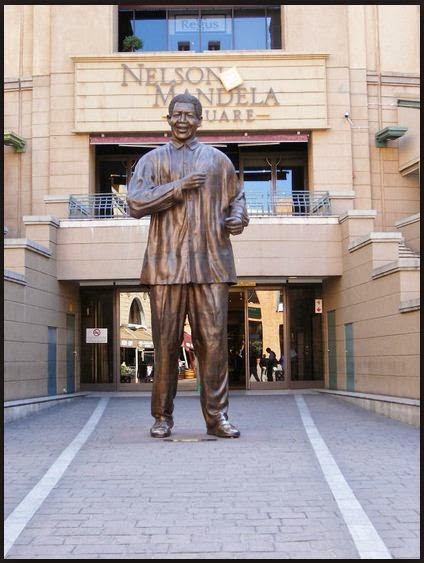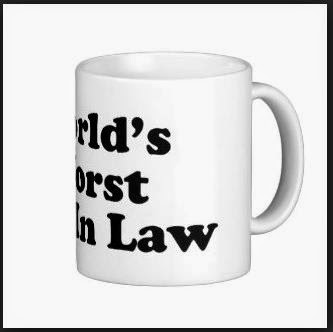18th
July, Nelson Mandela's birthday was gazetted by the UN as Mandela day in 2009
and celebrated for the first time in 2010. 67 minutes of charity are encouraged
in honour of Mandela's 67 years of fighting for social, political and economic
justice.
That
is in a small part, the size of Nelson Mandela. When he turned 95 (the last age
he would live to) I had wanted to put up a blog in tribute to this great son of
Africa, but I couldn't find the words for this great man. I had nothing to
write about the man so I decided to just reproduce the lyrics to John Clegg’s
famous song Asimbonanga. When he died I equally didn’t have anything to write,
so I decided to just share some famous pictures of Mandela and some of his
famous quotes.
However,
on the first Mandela day since his death, I've decided to discuss some aspects
of this extra ordinary life as I have experienced it many kilometers away
having never met the man or even been close as being within a 100 kilometers to
where he may have been at any moment. But that was the influence of Nelson
Mandela, you didn't need to be near him, you just felt his influence.
Very
few can deny that Madiba, as he was fondly called by his clan name, was a rare
breed. I first came to know that there was a human being called Nelson
Mandela in the late 80's when I was a very young boy. My friend's young brother
who is my friend too and a family friend happened to be named Nelson. Funny
enough, this Nelson, the other name Muyaba, many years later would be on my
wedding ceremony bridal party. Without digressing, the story is that I had
heard a few people refer to Nelson Muyaba as Nelson Mandela.
So
when I heard Nelson Mandela being mentioned a couple of times by many people
who were older, I always wondered why my friend was called that too. My elder
brothers would later explain to me that Nelson Mandela was a freedom fighter
imprisoned for demanding equality and an end to apartheid. Aged just five, six
or seven, the terms freedom fighter, equality and apartheid did not really
bring any serious meaning home. However, there were a number of South African
songs that depicted the fight against apartheid that were being played on
Zambia National Broadcasting Corporation (ZNBC) TV and since some of the songs
were too 'graphic', I started to fill the gaps in my understanding of
apartheid.
Then
one day I sat down in front of the TV to watch the movie Sarafina, the epic
film that stared Whoopi Goldberg, and my respect for the anti apartheid
activists sky rocketed. There were many names that constantly made headlines,
and my memory recalls the names Walter Sisulu and Oliver Tambo. Of all the anti
apartheid activists and freedom fighters the name Nelson Mandela was one that
sent the greatest repulsive waves across the world. Free Mandela was the common
chorus out of Africa, Latin America, Asia Europe and just throughout the world.
A FREE man, is what Mandela became on 11th February 1990.
Upon
his release from prison, Mandela's first visit was Zambia where many of the
Africa National Congress (ANC) activists who had fled the jaws of apartheid and
fear of jail found refuge. Though I was quite young then, I still remember how
big an occasion Mandela's coming to Zambia was. The preceding year had also
seen the visit to Zambia, of Pope John Paul II which was another big occasion I
remember.
While
many people much older than me remember the Mandela of the 60's who was
imprisoned for 27 years, many from my generation only remember the Mandela that
came out of Prison. He was an ageing man but very much a self assured man who
believed in himself and his way of things but never shied away from changing
course every time he realized he was on the wrong side. He also had a tinge of
arrogance about him but at the same time showed he was a humble man. One thing
he did do after his release from prison was to embark on an extensive
international travelling expedition where he addressed many forums including
the OAU, World economic Forum, and many other summits as well as receiving various
peace prizes together with F W de Klerk. However, while visiting the
Scandinavian countries and Czechoslovakia in May 1992, Mandela shocked the
world when his confrontational side emerged once more by suggesting that F W de
Klerk was personally responsible for the political violence in South Africa at
the time.
He
likened the violence in South Africa to the killing of Jews in Nazi Germany.
Mandela also criticised what he felt was the stranglehold imposed on the South
African press, which represented White-owned conglomerates. This attack had
shocked many as Mandela had mostly taken the role of mediator of the different
political factions in South Africa and signing many peace accords. Perhaps it
was the case of 'old habits die hard', as he was one of the founders of the ANC
military wing, Umkhonto we Sizwe.
In
the time Mandela was in jail, there had emerged a cadre of youth who had lived
through the struggle years and they believed in violence and confrontation as
the number one solution in order to achieve anything. Most of these saw Mandela
as having been softened by jail and did not approve of his no-violence stance.
In April, 1993 Mandela was booed at a rally in Soweto’s
Jabulani stadium when he tried to convey a message of peace and restraint following
the assassination of Chris Hani.
Mandela also caused
a political row after he had been voted ANC president to replace the ailing Oliver
Tambo when he suggested that South Africa's voting age should be lowered to
enable 14-year old children to vote.
As it
turned out, Mandela would be the first president of a democratic election in
South Africa barely 4 years after release from prison. Mandela's 27 years in
prison I can imagine were dominated by tremendous hardship. There were freezing
winter nights, suffocating summer days, poorly if not barely cooked food and
back-breaking labor. On cold winter nights, a thin mat which has now found
itself in a museum served as a bed, on a stone floor for most of his time
behind bars. Winnie Madikizela Mandela had been to see her husband a restricted
number of times only. In that same period he lost his First born Son & his
mother but was not allowed to attend each of their funerals! In addition, none
of his children was allowed to visit him in jail. In those 27 years there were
moments of high drama, including aborted escape plans (Michael Scorfield Prison
Break stunts).
Nelson Mandela is a rare breed not because
he spent 27 years in jail, but because besides undergoing so much - he chose to
forgive. That is not what other African freedom fighters did. The early freedom
fighters became demi-gods in their own countries with most of them throwing out
of the window all the democratic tenets they preached and putting on the entire
dictatorial amour they sought to rid from their colonial masters.
Nelson Mandela chose a different path, embracing
forgiveness, reconciliation as well as choosing not to keep hold of power for
eternity. Perhaps he had the advantage of seeing what had happened to the other
freedom fighter before him who held onto power for many years until they became
irrelevant or their own citizens didn't want them anymore there by being
humiliated out of office and a new breed of African leaders emerging in the
90’s. Some have even suggested that at the age of 76 when he was elected as
president, Mandela didn't have enough fight left in him hence he chose to
forgive all his oppressors, aggressors and enemies so that he could live his
final years in peace.
Whatever the rationale behind his choices which
led to the decisions of forgiveness and reconciliation, nothing can be taken
away from his desire for a just society. In his own words, in court before
sentencing in 1964, he chose these word; "During my lifetime I have dedicated myself
to this struggle of the African people. I have fought against white domination,
and I have fought against black domination. I have cherished the ideal of a
democratic and free society in which all persons will live together in harmony
and with equal opportunities. It is an ideal which I hope to live for. But, my
lord, if needs be, it is an ideal for which I am prepared to die."
Mandela's pre-occupation was not to change the skin colour of the ruling elite from white and replace with black. His ideology was to bring forth a democratic dispensation where ideals of the rule of law, one man one vote, equality and a free press were truly present. To him it didn't matter who was in power as long as the system promoted the ideals of equality. He didn't need to rule forever to make this happen. He just happened to have been the conduit through which the Republic of South Africa buried the hewers of hate and drawers of colour on one side and those who wield mastery over the countries resources on the other.
In 1999, after only a single term in office, Mandela handed over first the ANC presidency to Thabo Mbeki. He would later choose not to contest the Republican presidency, again paving the way for Thabo Mbeki to be elected president. At the time Mandela stepped down as republican president I was away at boarding school and we didn't get much news then, but Mandela stepping down was news that filtered through to us at a time when internet was not much developed in this part of the world.
I remember when I heard the news I was
shocked! After all the years in jail, the least we could have expected him was
to complete his mandatory two terms. We have seen other even try to subvert
constitutions by going for a third term of office. This is what set him apart.
He didn't want to rule for 27 years as compensation for being in jail. This is
my greatest memory of Mandela. It was a first in my life time. We had gotten
used to the likes of Kamuzu Banda and Kenneth Kaunda who had to lose an
election in order to cede power.
In my younger days, much earlier I the
90’s, we would refer to Kamuzu Banda as the Kaunda of Malawi. In other words
Kaunda was the term for president. “Who is the Kaunda of country X or country
Y?”, we would ask each other. All the great sons of Africa who brought us
freedom have been special in their own respective ways. Kwame Nkruma, Mobutu
Seseseko, Julius Nyerere, Kenneth Kaunda, Samora Machel, Kamuzu Banda and many
others, but Mandela was more relevant to my time. His relevance has made him
all the more, a rare breed among his peers. Sixty seven years of fighting for
social justice, and not even making any fortune out of it. Truly a rare breed.




